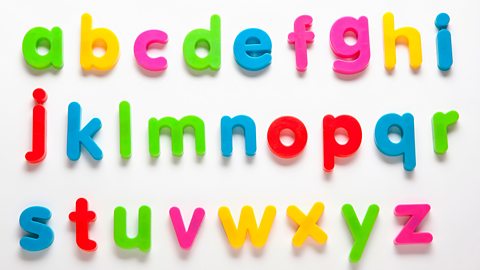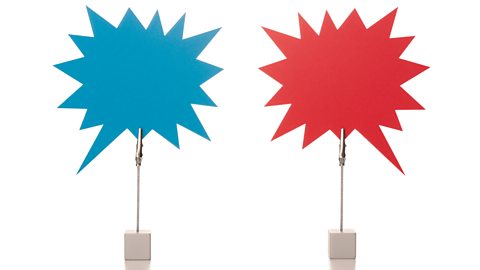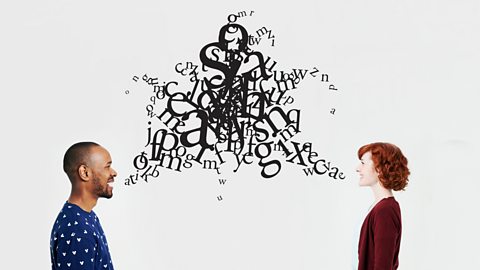From patriarchy to snowflake: five keywords you need to know
In the series Keywords for Our Time, Michael Rosen has been exploring well-known phrases from our daily conversations and news stories.
By looking at their usage and origins, we can see how they frame public argument and shape our thinking (sometimes in ways we do not notice).

1. Snowflake
Symbolically, snow and snowflakes have long been used to represent purity. Since around 2006, snowflake has regularly been used to describe people. Its usage has increased so much that the word was officially added to the dictionary in 2016. An overly-sensitive, or easily-offended person, or one who believes they’re entitled to special treatment on account of their supposedly unique characteristics. Often paired with ‘special’, the phrase is used in a derogatory way to deride those particularly on the left of the political spectrum, and those with progressive liberal views. The author Chuck Palahniuk used the term 'snowflake' as an insult in his 1996 novel Fight Club. But way back in early 1860s in Missouri, USA, a 'snowflake' was a person who was opposed to the abolition of slavery.

Snowflake: from purity to overly-sensitive and easily-offended
Michael Rosen and Juno Dawson discuss the origin and use of the word 'Snowflake'.
2. The Nanny State
It’s a phrase you’ll hear in debates about business regulation, matters of road safety or in arguments over what we choose to eat and drink. But the Nanny State evokes a type of bossy matron telling us to tie our shoelaces, or eat our vegetables. In his column in the 3 December 1965 edition of The Spectator magazine, the Conservative MP Iain Macleod used the phrase ‘Nanny State’ for the first time, when discussing the proposed introduction of a speed limit on Britain’s motorways. The phrase then soon became part of our political discourse and our national conversations. But is it inherently sexist?

The Nanny State: the word troubling us since the 1960s
Michael Rosen and Stuart Maconie examine the phrase 'The Nanny State'.
3. Patriarchy
The word patriarchy is having a moment. Since the #MeToo movement use of the word has spread, but the word itself has been around a very long time. The word patriarchy describes a system that we can all see to be true: the majority of power - almost everywhere in the world - nestles in the hands of men. Patriarchy originates from the Greek words meaning ‘the rule of fathers’.

Patriarchy: from the Greek meaning 'the rule of fathers'
Natalie Haynes on the origins and importance of the word 'Patriarchy'.
4. Safe Space
Originally the phrase came from American business culture and the corporate world of the 1940s. Social psychologist and behaviourist Kurt Lewin came up with a way of colleagues giving one another feedback about their behaviour at work without fearing they might be condemned for doing so – they needed to feel safe before speaking out. This concept then broadened into general, more therapeutic contexts, such as counselling. Nowadays, a safe space is generally a quiet room where, say, if you suffer from a panic attack, you can go for a break from the hurly burly of the events taking place in the outside world.

Safe Space: from the 1940s American corporate world to now
Isabel Hardman on the term ‘Safe-Space’ and how it developed.
5. Sovereignty
Sovereignty is something we’ve heard a lot about in recent months, the word features heavily when Brexit is discussed. In law, our constitution has the sovereignity of parliament at its heart. It’s ironic that when the word itself is considered so quintessentially English it actually originates from France. A French jurist in 1576 coined the first known use of the term - meaning the absolute and perpetual power of a republic.

Sovereignty: a word that came from France
Michael Rosen and Afua Hirsch talk about the word ‘Sovereignty’.
For more information on each of the words examined in this series, listen to Keywords for Our Time.
-
![]()
Keywords for Our Time
Series of programmes examining key phrases in public debate.
-
![]()
What do the words you wear say about you?
Slogan clothing is having what fashion insiders might call “a bit of a moment”.
-
![]()
17 Multicultural London English words and what they mean
Blud, peng, mandem and more.
-
![]()
What our internet searches say about us
Wherever we live and whatever we do, we leave behind a trail of numbers.




